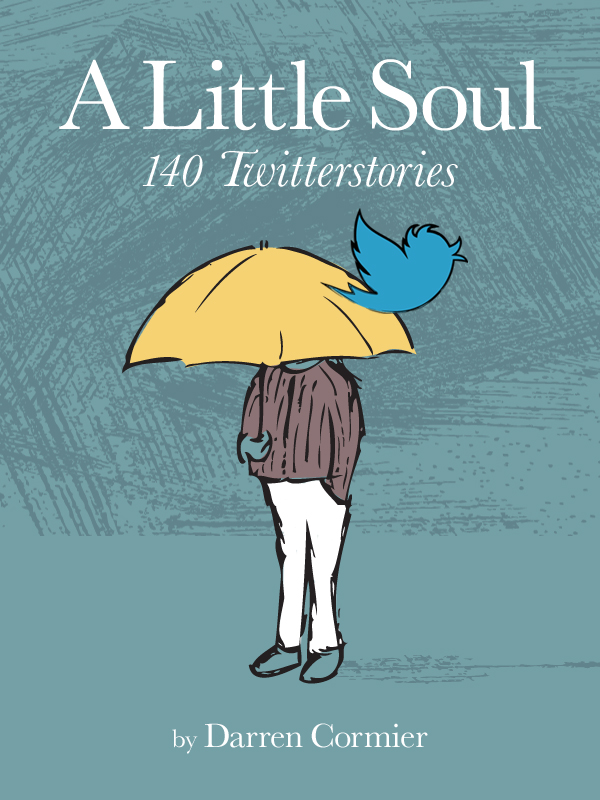
And would actually begin a new book if he came to the end of one before his day’s quota had been met. – David Markson, This is Not a Novel
Mood affects everything we do, how we interact with other people, affects our productivity at work, affects how personal relationships, our energy levels. When we are in a sour mood (angry, sad, depressed, frustrated, etc.) our productivity at work suffers, we don't feel like working or interacting with other people, others' good moods will aggravate us, seeing tiny little moments of joy from others will annoy us and make us wish that person would leave. We probably don't want to create music, art, literature, cook, etc. Likewise when we are in a happy mood, when we are excited, content, we are more prone to creativity, our productivity increases, our interactions with others is more affable, tiny instances that will usually aggravate us (the copier being out of ribbon, the cat knocking over our glass of water, the next door neighbor mowing his lawn at 8p when we're trying to enjoy a book or our favorite TV show) we can shrug off.
But how does mood affect writing, or any art for that matter, assuming of course that we have mustered up the courage to write in the first place, that we have been able to see past our elation and attention devouring ecstasy, past our lethargy and depression to focus on writing?
One wonders if Anthony Trollope had this problem. As shown in the Markson quote above, Trollope clearly did not have a problem in garnering the motivation to write. However, what was his output like on those days he did not feel quite so creative, on those days he just didn't feel enthusiastic about the writing process, those days when he would have rather just stayed in bed with a bottle of wine and asked his servants to bring him a ham sandwich, he was not getting out of his sleeping gown? Was his output more dour, did he decide to work on stories or scenes that would reflect his mood? If he woke up in a foul mood one morning, but if in the novel he was working on at that moment he was presently working on a blissful wedding scene, would he have been able to push aside his own negativity and create the scene the novel demanded? Or did his mood alter the scene? Would he have to go back and revise what he had initially written as a crashed wedding, a blasphemous affair into something more mood appropriate? And vice versa. If one is in an elated mood, are they more capable of accessing the dark recesses of their mind, of their heart, if they are working on a murder scene or a scene of heartbreak, or emotional turmoil?
Does the act of writing itself allow us to focus not on ourselves but on the work? Is the outlet enough to allow us to compartmentalize our private lives from our writing lives? Or does our personal mood affect the output of what we write?
A writer friend wrote a while ago that when she is in the midst of writing an emotional scene in her book or her story that she can't help but become emotional as well, that what the characters are going through affect her. After completing the scene, she feels emotionally drained. And perhaps this is a symbiotic nature of the work itself. I haven't asked her, but I'm assuming she went into her writing that day knowing that the piece would be emotional, but that earlier she was probably in a good mood. As she began writing the events themselves began to affect her, her writing, the scene affecting her mood, her mood reflecting in her writing, scene and personal disposition mirroring each other, fiction reflecting life reflecting fiction reflecting life reflecting....
I cannot say this has happened before. In one of my stories (as yet unpublished) I wrote the scene of a young man watching the death of his mother, the two of them sharing a cigarette in the kitchen after she collapsed while they waited for the ambulance. At the risk of sounding immodest, it is a very powerful scene. However, when I was writing it, I only felt pleasure that I was able to capture an emotionally wrenching scene with such authenticity. The writing did not leave me emotional for my character; I did not feel saddened afterward, nor was my mood being reflected in the story itself. However, I did know the night before that I would need to be a bit more alert to write the scene. Once I arrived at the point of the mother's death flashback, it was 3am, and my eyes were sagging to the floor. I realized I would need to be of full alertness to properly convey the emotional intensity of the scene. But during the writing of it, I felt nothing but placidity, an unwavering equanimity. What my character was going through did not affect my mood. Or did it? Would I have been able to write so authentically as my character had I lost my job earlier in the day? Would I have been able to render the devastating power conveyed by the shared cigarette had I won the lottery earlier that afternoon? (Would I even have been writing if I had won the lottery earlier that afternoon?) It's possible that my mood of calmness was portrayed in the calm manner by which I wrote. We can never be sure.
Eric Maisel wrote in his book Deep Writing about how to best access our deep feelings, how to allow ourselves to become free of our inhibitions and fears through writing about them, how writing can be a form of therapy. He wrote of how our own years-long issues can be a catalyst for our stories and be re-explored through story. At the beginning of the book he quoted a former patient who believed that a healthy sense of self and well-being was needed to create art:
When I am completely healthy, completely healed, will there be more art in me? I think there will be and maybe it will be some of the best. That sense of wholeness and well-being must be a wonderful place to make art from. I hope I get a chance to be there, even if only for a while.

 RSS Feed
RSS Feed

